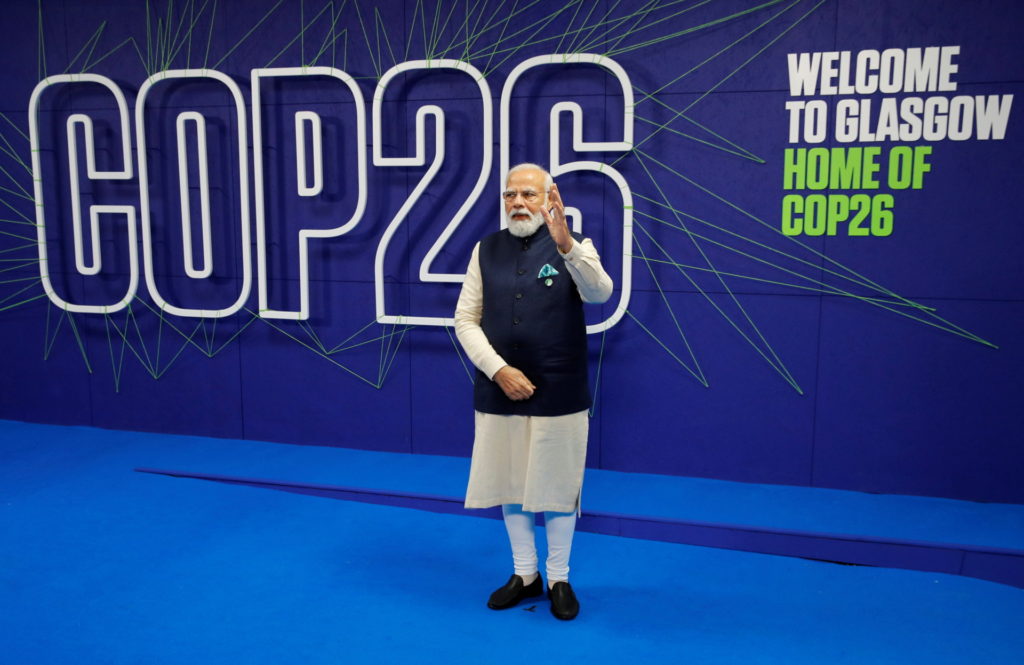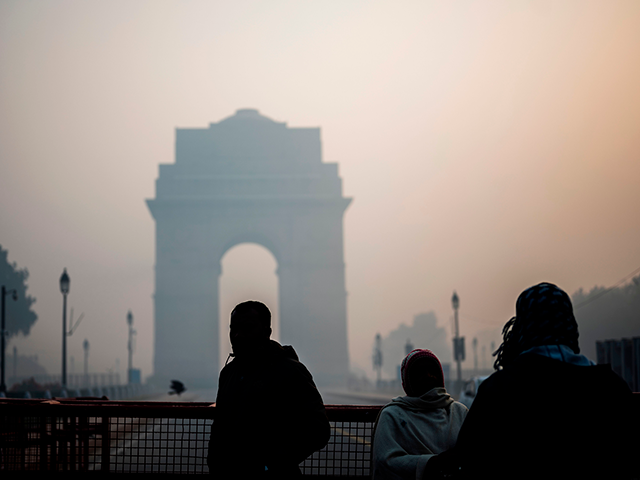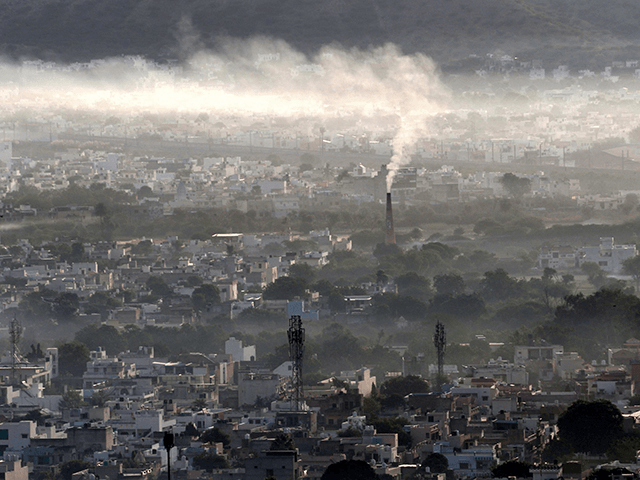ROME, Italy — The Vatican newspaper L’Osservatore Romano gave frontpage coverage to India’s alleged hypocrisy Monday, underscoring its reticence to commit to CO2 reductions in Glasgow while experiencing dangerous levels of smog in New Delhi and elsewhere.
In its article titled “Lockdown for Pollution,” L’Osservatore Romano reports that authorities in New Delhi have closed schools and construction sites this week due to a “health emergency” caused by dangerous levels of air pollution.
The article suggests that given its lack of air cleanliness, India should have been eager to sign on for drastic restrictions of carbon dioxide emissions at the COP26 climate conference in Glasgow, which concluded this weekend.
In point of fact, however, the 10-page Glasgow Climate Pact nowhere mentions the word “pollution,” echoing the bizarre absence of pollution references in its predecessor, the 2015 Paris Climate Accord.

India’s Prime Minister Narendra Modi arrives for the UN Climate Change Conference COP26 at SECC on November 1, 2021 in Glasgow, Scotland. (Photo by Phil Noble – Pool/Getty Images)
Reducing emissions of carbon dioxide — a colorless, odorless, non-toxic, non-polluting gas — would contribute nothing to resolving India’s very real problem of air pollution.
The stated purpose of the COP26 conference was addressing the issue of climate change, not looking for ways to assist countries whose citizens die every day from the overly high concentration of fine particulate matter in the air.

People gather in front of India Gate amid smoggy conditions in New Delhi on January 14, 2021. (Photo by JEWEL SAMAD/AFP via Getty Images)
India’s people are not dying from climate change but pollution, and COP26 offered it no relief.
According to the World Health Organization (WHO), air pollution, measured in annual mean concentrations of fine particulate matter, “kills an estimated seven million people worldwide every year” and “9 out of 10 people breathe air containing high levels of pollutants.”
WHO also estimates that one in four child deaths “could be prevented by cleaning up the environment.”
The UK-based Lancet medical journal similarly revealed in a landmark 2017 study that air pollution and not carbon dioxide is the greatest environmental cause of disease and death in the world, and yet it is largely ignored in international ecological programs.
In its study, the Lancet found that pollution-related diseases were responsible for some 9 million premature deaths in 2015, or nearly 15 times more than from all wars and other forms of violence combined.
Pollution is not only the largest environmental cause of disease and premature death in the world today, the study found, but diseases caused by pollution were responsible for roughly 16 percent of all deaths worldwide — “three times more deaths than from AIDS, tuberculosis, and malaria combined and 15 times more than from all wars and other forms of violence.”
For those truly concerned with human health and preventing premature deaths, a shift in attention from climate change to air pollution would be a welcome step.

COMMENTS
Please let us know if you're having issues with commenting.